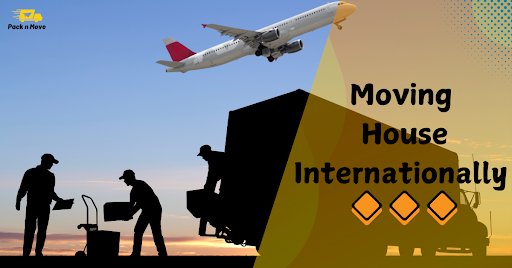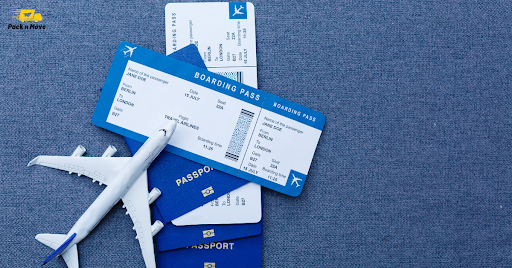Moving internationally is a huge adventure—and a big challenge! For many, it represents a fresh start, a chance to experience a new culture, and an opportunity to embrace life in a different corner of the world. But moving abroad also requires careful planning, organization, and patience. To make the transition as smooth as possible, we’ve created a comprehensive guide covering everything you need to know, from paperwork to packing, so you can embark on your journey confidently.
Introduction to International Moving
Relocating internationally is exciting but involves a lot of detailed work. From understanding immigration and customs laws to finding the right moving company, every decision matters. With the right preparation and strategy, you can tackle these challenges head-on and set yourself up for success in your new destination.
Initial Preparations: Planning Your Move
Starting Early: Key Timelines
Planning is everything. Aim to start your preparations at least six months in advance. This timeline allows you to address all essential tasks without feeling rushed.
Questions to Ask Before Moving
Consider your lifestyle, budget, and expectations for your new country. Ask yourself: How will housing costs compare? What lifestyle adjustments might be necessary? These questions are essential for a smoother transition.
Researching Immigration Requirements
Every country has unique immigration laws and documentation requirements. Consulting an immigration professional can save you from costly mistakes. They’ll help with legal documents like your passport, VISA, and even specialized customs forms for any unique items you’re bringing with you.
Choosing the Right Moving Services
Overview of Moving Options
Moving internationally offers a variety of transport options, including sea, air, and land. For large loads or long distances, overseas shipping via sea freight can be cost-effective, whereas air shipping is faster but pricier.
Selecting a Reputable Moving Company
It’s essential to choose the right company for the job. International Van Lines, American Van Lines, Blvd Moving, and Mayzlin Relocation are some of the best international moving companies renowned for their service and expertise.
Understanding Costs and Getting Quotes
Costs can vary widely based on distance, weight, and the company you choose. Request multiple quotes and compare services. Consider your budget and be sure to ask each company for an itemized list of fees to avoid surprises.
Essential Documents and Legal Requirements
Key Documents Needed
Moving abroad involves a lot of paperwork. Make sure you have all legal documents such as your passport, VISA, and Social Security card ready. If applicable, gather birth certificates, adoption papers, marriage certificates, and any divorce papers.
Health and Immunization Records
Different countries have different immunization requirements. You’ll need medical records, dental records, and possibly vaccination certificates, especially if you’re moving to a country with specific health regulations.
Pet Documentation
If you’re bringing a pet, look up the pet importation laws of your destination. Many countries require vaccinations, quarantine, or special permits for animals. Having your pet documentation in order can make a big difference in their experience and comfort.
Financial and Healthcare Considerations
Managing Finances
Setting up banking arrangements in your new country is critical. Talk to an accountant who understands tax laws in both your current and future homes to prevent any financial missteps. It’s also a good idea to explore international banking options that may help you avoid heavy fees.
Setting Up Healthcare and Insurance
Health insurance can be complicated when you’re in a different country. Research international health insurance options and understand how healthcare works in your host country. For families, look into coverage for each family member, including emergency hospital access.
Packing and Organizing Belongings
Packing Strategies
Decide what to take, store, or sell. Essential items should be packed first. For electronics, remember that not every country uses the same voltage. It may be better to sell some of these items before your move.
Shipping, Storing, or Selling Items
Shipping can be expensive. Consider storing some belongings or even selling items that will be hard to move. For fragile or valuable items, consult relocation consultants on the best way to transport them safely.
Packing Fragile Items and Personal Effects
Use sturdy materials, and don’t forget to label everything clearly. If you’re packing yourself, look up tips on how to protect breakable items or consider hiring experts like International Van Lines or Mayzlin Relocation who specialize in moving fragile goods internationally.
Family and Pets: Special Considerations
Moving with Family
If you have kids, you’ll need to explore school options in your new destination. Consider the real estate markets nearby and get to know the local school system to make the best choice for your family.
Pet Relocation
Moving pets internationally involves its own set of rules. Research immunization requirements and find pet-friendly accommodations that meet the customs requirements of your host country.
Countdown to Moving Day: Final Preparations

One-Month Checklist
At this point, you should have housing, transportation, and all documentation sorted. Confirm your flights, arrange for housing, and forward any mail you need to receive in your new country.
Two-Week Checklist
Double-check with your international movers and finalize your packing. Make sure you have all your essential belongings in a separate, easy-to-access location.
One-Week Checklist
Confirm all reservations and say goodbyes. This is a good time to tie up loose ends, like canceling subscriptions, paying outstanding bills, and saying final farewells.
Settling In
Finding Cell Phone, Utilities, and Internet Providers
After you arrive, you’ll need to set up phone service, internet, and utilities. Many expats recommend finding local providers immediately to help with communication and navigation.
Adapting to Cultural Differences
Living abroad means adapting to a new culture. Start by learning basic customs, greetings, and social expectations. It’ll make the transition smoother and help you feel more comfortable in your new environment.
Conclusion
Moving internationally is more than just changing your address; it’s a complete lifestyle shift. Embrace the adventure, stay open to the unexpected, and remember that every new experience is a chance to grow and learn. With a bit of preparation and a positive mindset, you can make this transition not only smooth but also enjoyable.
Frequently Asked Questions (FAQs)
Q. What documents do I need for an international move?
Essential legal documents Include your passport, VISA, Social Security card, and medical records. Additional items might include birth certificates, marriage certificates, and pet paperwork.
Q. How much does it cost to move internationally?
Costs vary depending on destination, moving method, and chosen company. Request quotes from companies like International Van Lines and Blvd Moving.
Q. How do I manage healthcare in a new country?
Look into international health insurance to cover you overseas. Check with local healthcare providers to understand what services are available and how to access emergency care.
Q. Can I bring my pet when moving internationally?
Yes, but be aware of customs and immunization requirements. Some countries require pet quarantine or specific vaccinations.
Q. How should I pack fragile items for an international move?
Use high-quality packing materials and label fragile items. Consult experts like International Van Lines for added protection.

